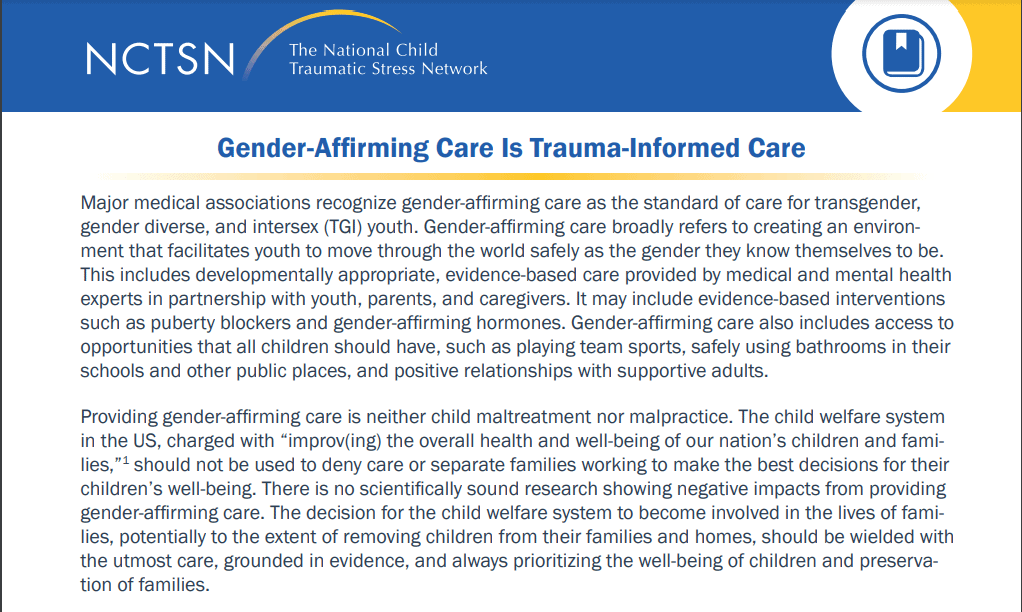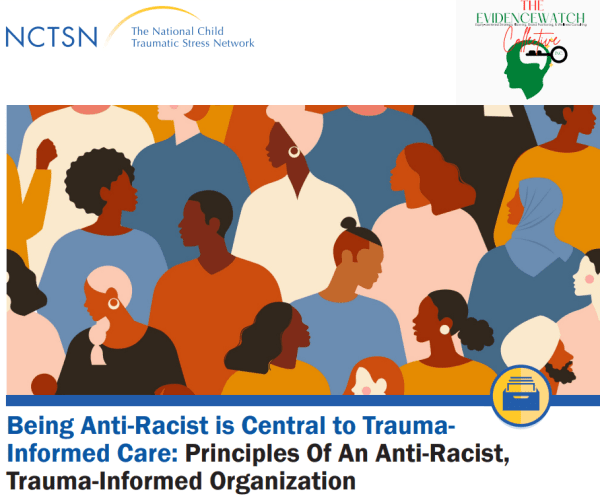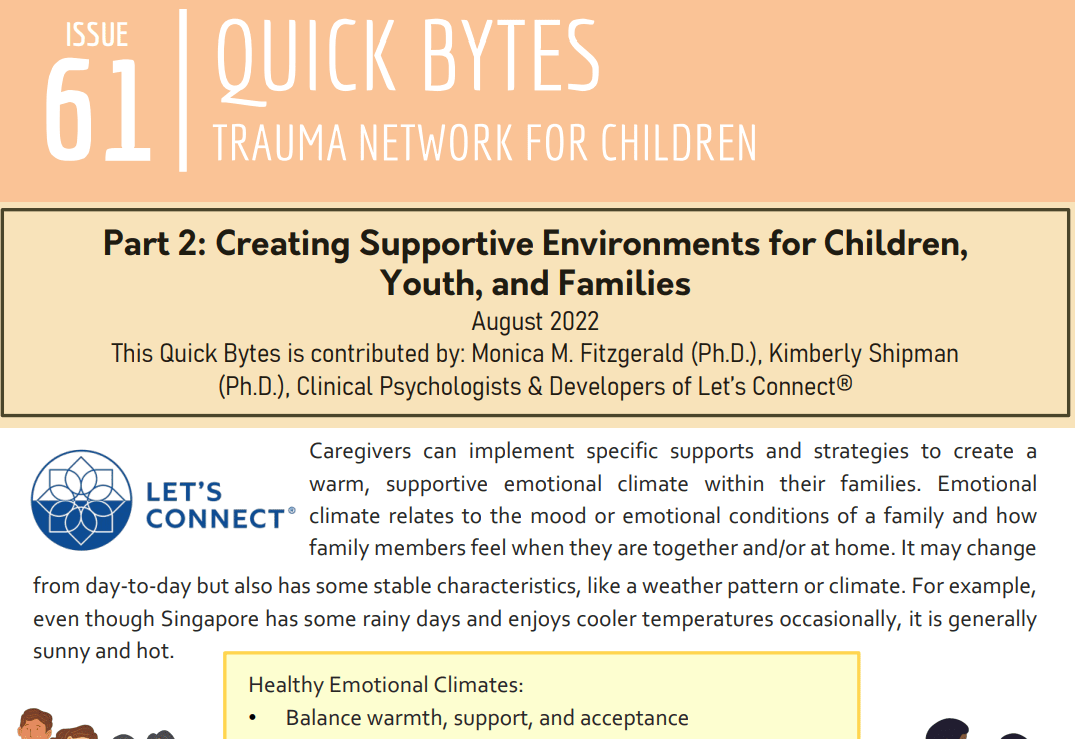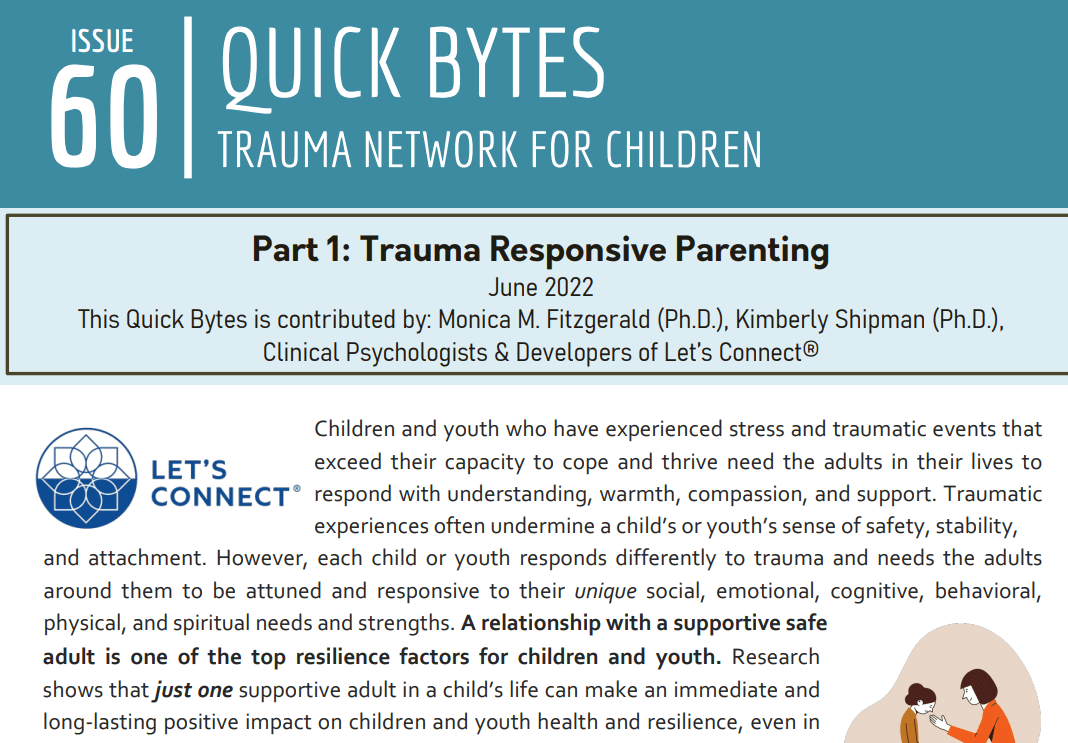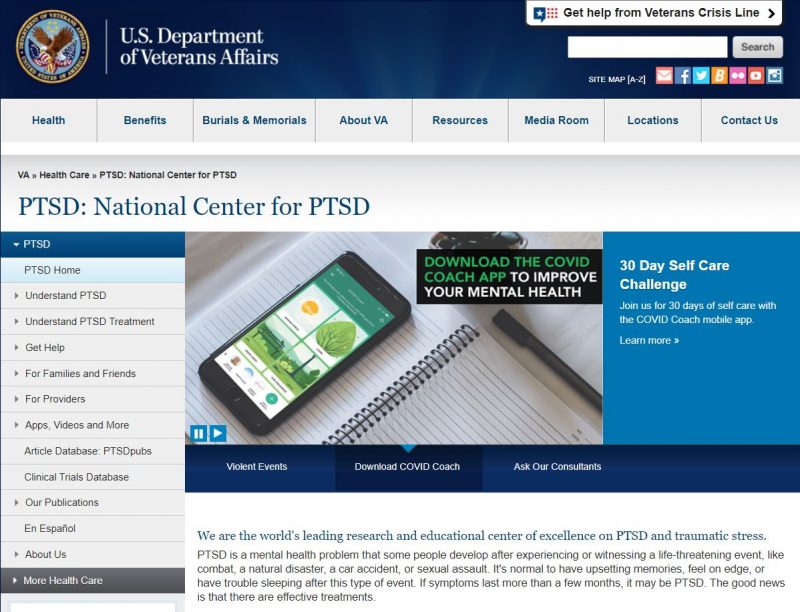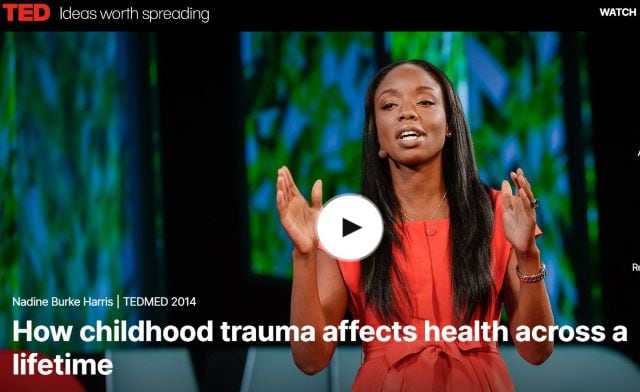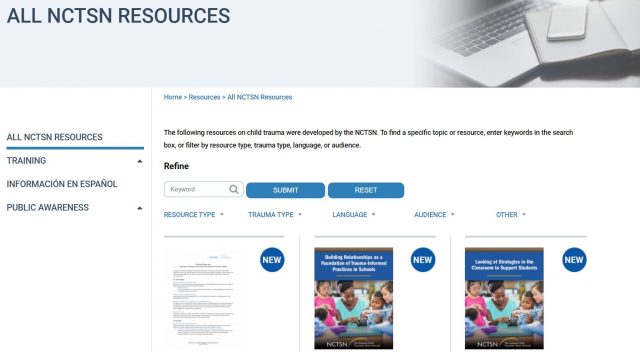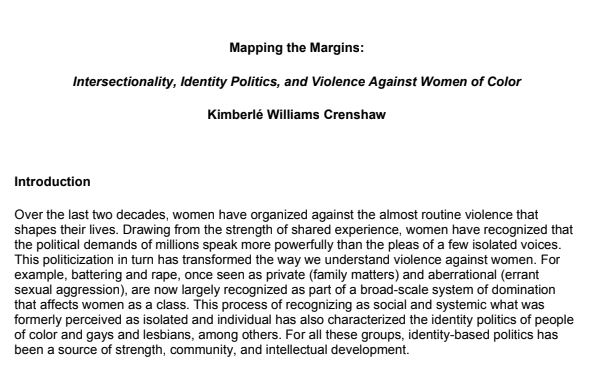Major medical associations recognize gender-affirming care as the standard of care for transgender, gender diverse, and intersex (TGI) youth. Gender-affirming care broadly refers to creating an environment that facilitates youth to move through the world safely as the gender they know themselves to be.
This includes developmentally appropriate, evidence-based care provided by medical and mental health experts in partnership with youth, parents, and caregivers. It may include evidence-based interventions such as puberty blockers and gender-affirming hormones. Gender-affirming care also includes access to opportunities that all children should have, such as playing team sports, safely using bathrooms in their schools and other public places, and positive relationships with supportive adults.
Resource Types
Resource Topic
From the NCTSN: "Systems and organizations must shift beyond performative action toward becoming antiracist and trauma-informed. This resource offers actionable principles and strategies that organizations can implement to make this move toward fundamental transformation. Our nation is at a critical precipice for reimagining how to improve access to and quality of the services for children, families, and communities throughout the United States (US) who have been traumatized by the current and historical impacts of anti-Black racism, as well as to dismantle the white supremacy culture that continues to uphold this racism. The goal of this resource is to light a fire in the bellies of systems, their leaders, and their agents to adopt conscious efforts and actions that promote equity, healing, and justice. This cannot be achieved by inspiring systems to simply think differently about individuals negotiating racism in their daily lives - they must act differently."
This resource is part II of a collaboration with the Trauma Network for Children (Singapore) and highlights skills and strategies to create intentional, supportive environments.
This tip-sheet, was created in partnership with our colleagues at The Trauma Network for Children Program in Singapore. It highlights Let's Connect communication and relationship strategies.
ICCTC was established to develop trauma-related treatment protocols, outreach materials, and service delivery guidelines specifically designed for American Indian and Alaska Native (AI/AN) children and their families.
Website for the Veteran's Administration's National Center for PTSD that has high-quality information on adult PTSD including assessment, treatment and education resources.
In this TedMed talk, Pediatrician Nadine Burke Harris, MD, explains that the repeated stress of abuse, neglect and parents struggling with mental health or substance abuse issues has real, tangible effects on the development of the brain.
Direct link to the National Child Traumatic Stress Network's resources, searchable by topic, trauma type, resource and language type.
Digital hub of the me too movement. Includes ever expanding content and a Healing Resource Library, a national database of programs and supports for survivors.
Kimberlѐ Crenshaw's paper exploring intersectionality, identity politics, and violence against women of color.


